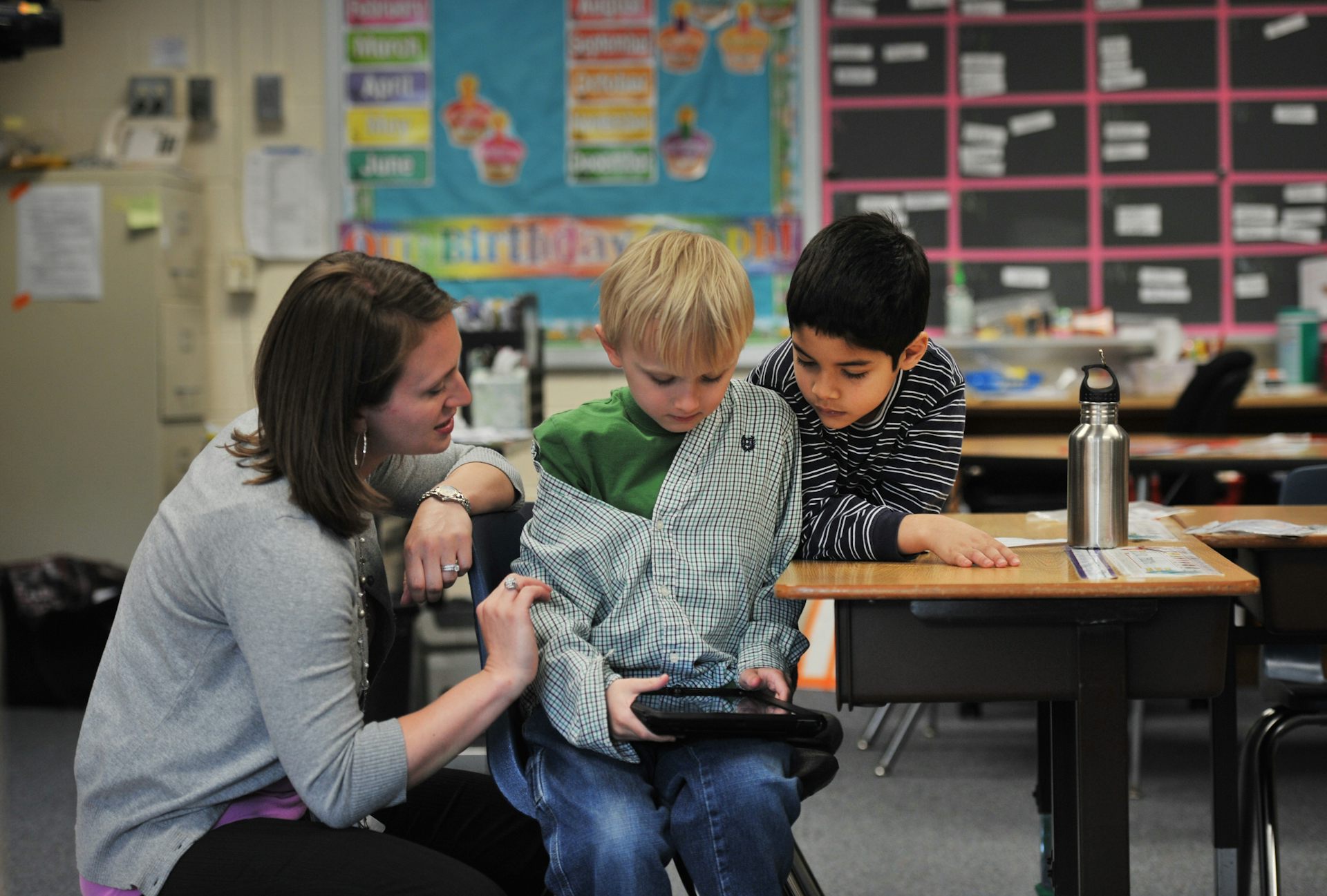Teens with secure family relationships 'pay it forward' with empathy for friends
Teenagers develop empathy over time, but those who feel safe and connected with their families may have a head start.

The Research Brief is a short take about interesting academic work.
The big idea
Teens with more secure family relationships get a head start on developing empathy, according to my colleagues’ and my new study tracking adolescents into adulthood.
In contrast to popular myths about self-obsessed teens, existing research shows that adolescence is a key stage of development for the growth of empathy: the ability to stand in someone else’s shoes, to understand and resonate with their emotions and to care about their well-being. Empathy is a skill that develops over time, and it has major consequences for teens’ social interactions, friendships and adult relationships.
So how do teens learn this critical skill?
Our team’s new findings, published on July 15, 2021, in the journal Child Development, suggest that teens who have secure, supportive family relationships provide more empathetic support to their friends.
Imagine yourself as a teenager with someone in your life who understands your struggles, offers help and makes you feel supported and connected – that’s what empathetic support is all about.
Our study, led by professor of psychology Joseph P. Allen, followed 184 adolescents from their early teens into adulthood. When teens were 14 years old, we interviewed them about their family experiences and their relationships with their parents.
The interviews were designed to measure attachment security – teens’ confidence that they can explore and build autonomy while trusting others to provide connection, safety and support when they need it. Past research shows that experiences of receiving sensitive care from adult caregivers, especially in times of stress, build secure attachment. In each interview, we rated teens as secure if they expressed that they valued their family relationships and described them in a balanced, clear way.
Then we videotaped the teens at ages 16, 17 and 18, while they helped their closest friend talk through problems they were facing. From these videos, we quantified how much support friends sought from the teens we interviewed – for example, by asking for their opinion on a situation. To measure how much empathetic support the teens provided, we looked for four types of behaviors: showing understanding, helping friends solve their problems, providing emotional validation and actively engaging in conversations.
We found that teens who were more secure in their family relationships at age 14 provided more empathetic support to their friends in early adolescence and showed consistently high empathy over time. Teens who were less secure showed lower levels of empathy at first but improved this skill over time and nearly caught up to more secure teens by age 18.
This finding suggests that teens naturally gain empathetic skills as they get older, but those with more secure family relationships may get there faster.

What is especially interesting is that teens’ friends were more likely to seek out support from secure teens, and friends who sought more help were more likely to receive it. Thus, friendships provide a key context for adolescents to practice giving and receiving empathetic support.
Why it matters
Teens who are more empathetic are less aggressive, exhibit less prejudice and are less likely to bully others.
Our research suggests that empathy starts with feeling safe and connected. Building secure relationships, characterized by trust, emotional safety and responsiveness, can give teens a firsthand experience of empathy. With this foundation in place, they can then share that empathy with others.
What’s next
There’s still plenty we don’t know about teens’ empathy. For instance, what equips teens to empathize with individuals from marginalized groups, with new peers or dating partners, or with their own future children?
Learning how to nurture empathy in adolescence is vital for building a more compassionate society.
This study was supported by grants from the National Institute of Child Health and Human Development and the National Institute of Mental Health (9R01 HD058305‐11A1 and R01‐MH58066) to Joseph Allen. Preparation of this manuscript was supported by the Eunice Kennedy Shriver National Institute of Child Health & Human Development of the National Institutes of Health under Award Number F32HD102119 to Jessica Stern. The content is solely the responsibility of the authors and does not necessarily represent the official views of the National Institutes of Health.
Read These Next
3 things to know about Kevin Warsh, Trump’s nod for Fed chair
Trump’s pick to helm the Fed is well known in the financial world, but his monetary policy views have…
I’m a former FBI agent who studies policing, and here’s how federal agents in Minneapolis are underm
A policing scholar and former FBI special agent lays out the established principles of policing and…
Short on resources, special educators are using AI – with little knowledge of the effects
As AI spreads in special education, the question remains: Can these tools uphold the individualized,…





